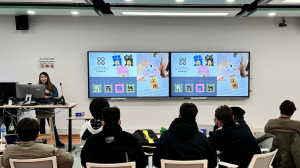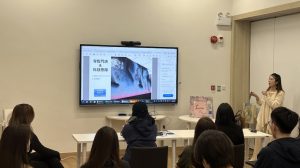The art of serving Chinese tea and instilling appreciation of it is a growing feature of the tourism and hospitality industries in Macao. In response, the IFT Tourism and Hotel School is broadening the range of vocational courses it offers that lead to qualifications to practise the art.
In December, IFT put on a course to prepare candidates for examination for the National Occupational Qualification Certificate – Tea Artist (Primary Skill Level) awarded by the Ministry of Human Resources and Social Security of the People’s Republic of China. The course offers students a thorough grounding in the theory and practice of Chinese tea culture.
The Institute has taught vocational courses for practitioners of the art of serving tea for several years. Classes for a new intake of students in the foundation-level Chinese Tea Master programme began in February. The courses cover the various kinds of tea plants, techniques for brewing their leaves and ways of drinking the result. They cover the characteristics special to each kind of tea, the methods of processing tea and the various types of tea sets.
Chinese tea culture is thousands of years old. It requires observance of a particular etiquette in serving tea and the use of special utensils. Tea grown in certain tea-producing areas can have great value, and the varieties available range from green to Oolong and Pu-er tea. Tea masters must know about the effects that each kind of tea is reputed to have on the health of the drinker.
Cup winners
The course IFT put on in December was taught by a certified instructor in Chinese tea culture, Ms. Zhang Lei. Ms. Zhang praises the skill of the students, their willingness to learn and their enthusiasm for the art of serving Chinese tea.
A wide range of careers is open to certified tea masters, Ms. Zhang says. She says teahouses or teashops may employ tea masters to impart their knowledge of tea to customers. In addition, the tourism and hospitality industries have increasingly shown a greater interest in employing people qualified to perform traditional Chinese tea ceremonies, she notes. Several integrated resorts in Macao have tea masters on their staff – some of them are called tea sommeliers.
Ms. Zhang says Mainland China has 5 levels of vocational qualification in the field of Chinese tea culture. The 3 lowest qualifications signify proficiency in technical aspects of the art, such as performing a tea ceremony properly and drawing out the correct flavours. The 2 highest qualifications signify managerial capability and a profound knowledge of Chinese tea culture.
The students that took the course staged by the Institute in December had their own motives for taking it. Some wished to learn more about Chinese tea culture for their own edification and there were others who considered the certificate they were pursuing a steppingstone in their career.








